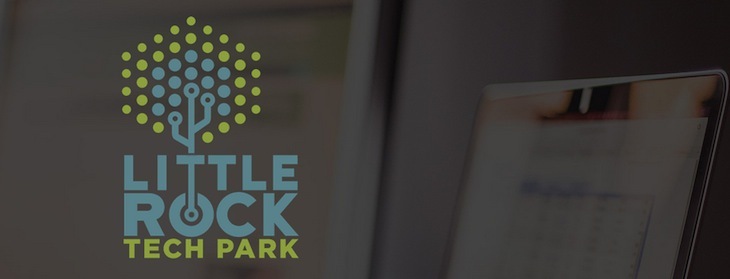Little Rock Tech Park now has 32 tenants, near full occupancy
by August 10, 2017 6:45 pm 1,219 views

The number of tenants in the newly renovated Little Rock Technology Park has nearly tripled since opening in early March and will likely near full occupancy within a few months, board members learned at the authority’s monthly board meeting on Wednesday.
Tech Park Authority Executive Director Brent Birch told directors that the downtown tech village now has 32 tenants, up from the original 12 occupants that signed leases when the newly-renovated facility first opened in March. Altogether, Birch said, there are now nearly 90 employees working at the city’s startup incubator.
“We got a lot of activity,” said the proud Birch, who serves as the authority’s lone employee and landlord of the tech-oriented office space that first got off the ground in 2011 after Little Rock taxpayers approved a $22.5 million sales tax referendum to finance the project.
Although the Tech Park first’s occupants moved into the facility in March, Tech Park officials delayed the grand opening until late April in order for the contractor to complete the final work on the multi-tenant, 38,000-square-foot facility located at the center of the downtown district in the 400 block of Main Street.
The now connected three adjacent properties, formerly owned by the partnerships headed by Little Rock billionaire Warren Stephens and the law firm of local attorney Richard Mays, is now outfitted with 76 private offices and 75 open co-working at the Main Street location.
The six-floor complex is fronted by its only retail tenant, the heavily-trafficked coffee bar operated by Blue Sail of Conway that opened up for business in late March. The taxpayer-financed project also includes office suites, meeting and event space, indoor bike racks, 24/7 access and onsite parking, and a corporate-level conference room named after former authority chair Mary Goode.
Birch told board members that the only space not filled are two offices on the 4th floor that are designed for a major employer or local tech-oriented firm looking for a downtown location among other like-minded companies. The Tech Park director said he believes leases will be signed for those open-floor offices within a few months.
“I don’t expect them to last long,” Birch said. “I think we will be seeing some interest on that space pretty soon.”
According to the financial report provided by Tech Park Board member Dickson Flake, the facility is receiving about $20,000 in monthly rental income from the 32 tenants. Birch said that the authority is also close to getting a final disbursement from the local bank consortium that is financing the $17.1 million loan to fund the first phase of the development.
Birch also said East Harding Construction still has a number of minor fixes to complete over the next several weeks before the project is formally closed. Once that happens, Board Chairman Kevin Zaffaroni said that with the success of the project’s first phase, the authority would need to begin planning on the second larger stage of the downtown tech village sooner than expected.
Preliminary discussions and architectural renderings for Phase II of the downtown project include a state-of-the-art wet and dry labs and an additional 160,000 square feet of office space. Although there is no defined funding or timetable for the next phase, which is likely to include some private funding, estimates for the early design plans top $30 million.
In other business, Birch reported that the Tech Park has recently received a $5,000 donation from the Walton Family Foundation, the Bentonville-based philanthropic foundation started by Walmart founders and Sam and Helen Walton.
The board also spent the last half-hour of the monthly meeting discussing the recent Tech Park successes and the completion of Little Rock Venture Center’s 2017 Fintech Accelerator’s program, which was housed inside the downtown startup incubator for the past three months. Backed by the Jacksonville, Fla.-based Fortune 500 financial tech firm FIS and The Venture Center, FinTech founders from two international and eight U.S. teams completed a 12-week summer boot camp for early stage businesses with pitches to more than 350 investors, financial services executives and community leaders during Demo Day at the Clinton Presidential Center in late July.
On the final day of the program, Gov. Asa Hutchinson extended an invitation for many of the startup companies to consider relocating and building their companies in Arkansas. Little Rock Chamber President and CEO Jay Chesshir, who has been a member of the Tech Park board since its inception, said chamber officials are negotiating with two of those FinTech companies to remain in Central Arkansas.
Board members later floated several ideas on how the authority could better promote and publicize the taxpayer-financed authority’s mission and operations. Chesshir said many people are pleasantly surprised once they visit the downtown facility and feel the excitement from the city’s burgeoning startup community.
“With the success of FinTech Accelerator program for the second year in the row and all the activity inside this building, we have a lot of momentum and activity in the Tech Park that the people who supported this project through all the controversies should know about,” said the chamber chief.
